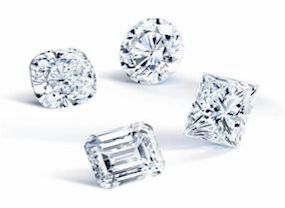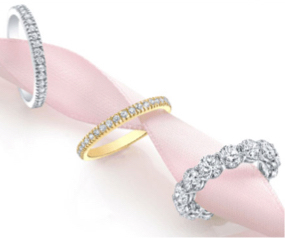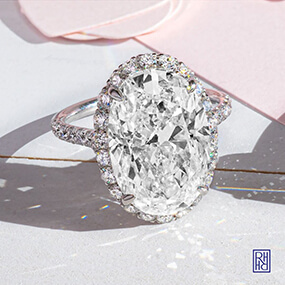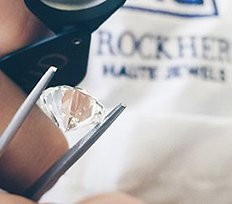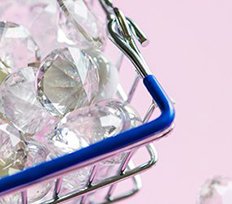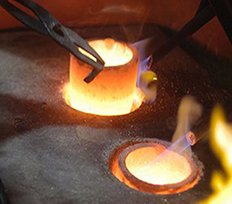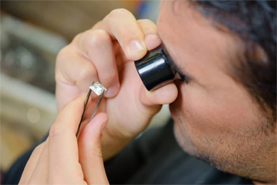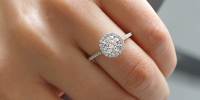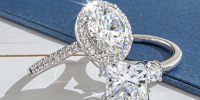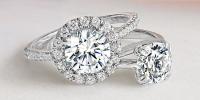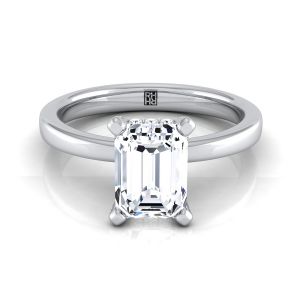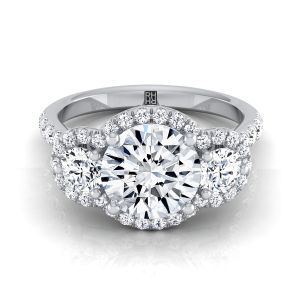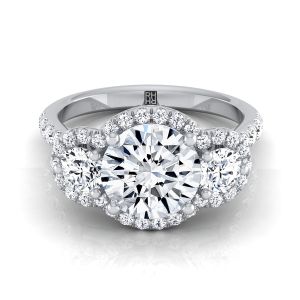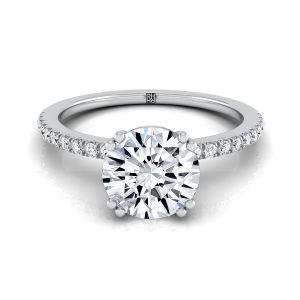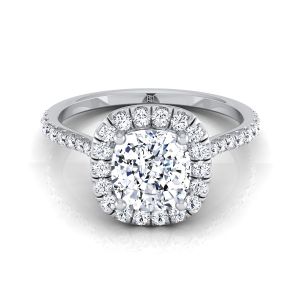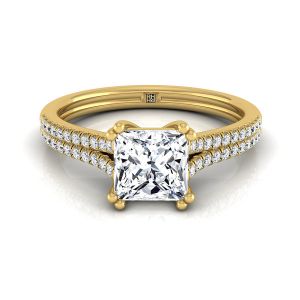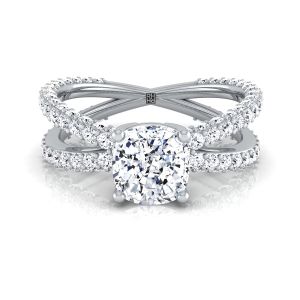
Most people get confused by the various terms related to
diamonds, such as manmade, simulants, essence, synthetic, cultured, etc. In reality, all these are different terminologies used by various
diamond retailers to show that a particular stone that is branded as
diamond, is not actually a
diamond. These terms often succeed in passing a stone off as a different form of
diamond rendering it more valuable. One good example is cubic zirconia.
When it comes to a
diamond simulant
ring, the stone would look exactly like a
diamond but lack the physical qualities of a natural
diamond. Note that some of the important characteristics of a
diamond are given below.
- It boasts an average density of 3.51
- Refractive index of diamond is 2.4
- It has cleavage in four directions
- Luster index is 17.2%
- Dispersion is 0.0444

However, this lack of qualities in the simulated
diamonds does not mean that it is fake or artificial. The stone in a
diamond simulant
ring can either be natural or manmade. Consider quartz, white
sapphire, etc., which are the options for natural simulated
diamond rings, whereas, cubic zirconia, glass, Moissanite, etc are the examples for manmade simulated
diamonds. Synthetic
diamonds, meanwhile, get created in the lab by employing high temperature and pressure.
 Most people get confused by the various terms related to diamonds, such as manmade, simulants, essence, synthetic, cultured, etc. In reality, all these are different terminologies used by various diamond retailers to show that a particular stone that is branded as diamond, is not actually a diamond. These terms often succeed in passing a stone off as a different form of diamond rendering it more valuable. One good example is cubic zirconia.
When it comes to a diamond simulant ring, the stone would look exactly like a diamond but lack the physical qualities of a natural diamond. Note that some of the important characteristics of a diamond are given below.
Most people get confused by the various terms related to diamonds, such as manmade, simulants, essence, synthetic, cultured, etc. In reality, all these are different terminologies used by various diamond retailers to show that a particular stone that is branded as diamond, is not actually a diamond. These terms often succeed in passing a stone off as a different form of diamond rendering it more valuable. One good example is cubic zirconia.
When it comes to a diamond simulant ring, the stone would look exactly like a diamond but lack the physical qualities of a natural diamond. Note that some of the important characteristics of a diamond are given below.
 However, this lack of qualities in the simulated diamonds does not mean that it is fake or artificial. The stone in a diamond simulant ring can either be natural or manmade. Consider quartz, white sapphire, etc., which are the options for natural simulated diamond rings, whereas, cubic zirconia, glass, Moissanite, etc are the examples for manmade simulated diamonds. Synthetic diamonds, meanwhile, get created in the lab by employing high temperature and pressure.
However, this lack of qualities in the simulated diamonds does not mean that it is fake or artificial. The stone in a diamond simulant ring can either be natural or manmade. Consider quartz, white sapphire, etc., which are the options for natural simulated diamond rings, whereas, cubic zirconia, glass, Moissanite, etc are the examples for manmade simulated diamonds. Synthetic diamonds, meanwhile, get created in the lab by employing high temperature and pressure.
